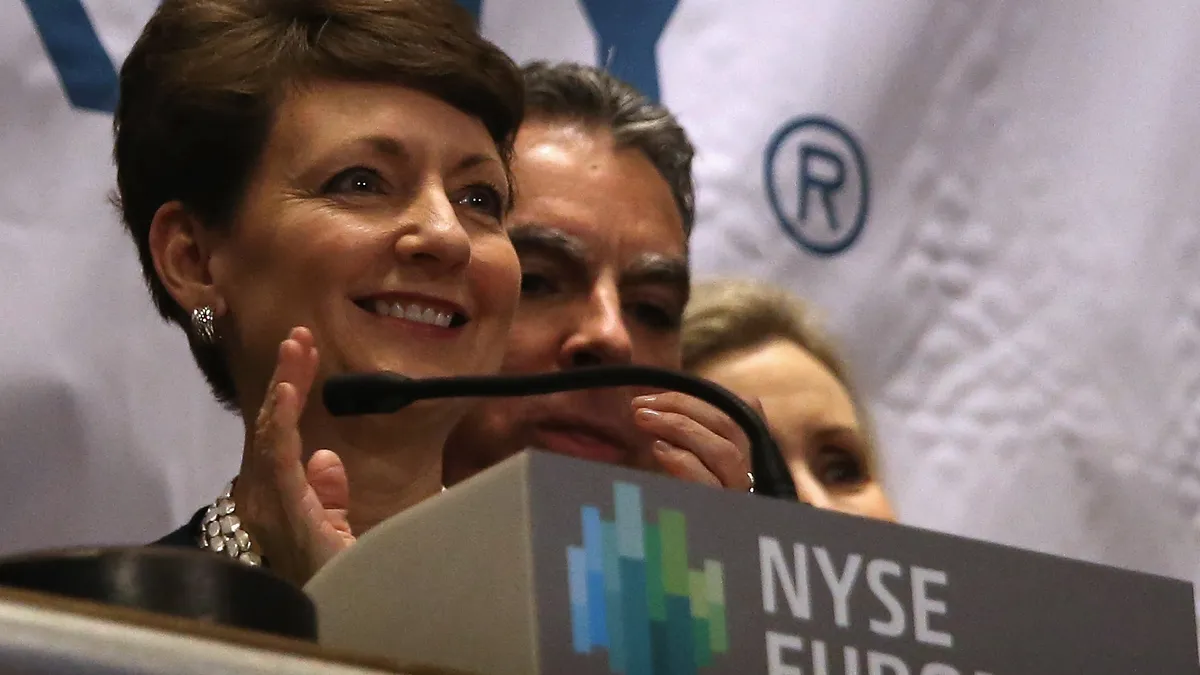Dive Brief:
- Duke Energy is "optimistic" a major piece of energy legislation will be introduced in North Carolina this year, based on months of closed-door stakeholder negotiations with state Republican leadership, industry groups and others.
- "We remain optimistic for comprehensive energy legislation this year, aligned with our shared goals of generation transition and regulatory reforms," said Duke CEO Lynn Good during the company's Q1 earnings call Monday. She added the utility's optimism is "based on the broad support for this legislation" within the state.
- A wide array of North Carolina stakeholders came up with a broad set of recommendations for the legislature last fall, including around performance-based rate incentives, power market reform and more. But some of those same groups — in particular environmental and rate advocates — have been excluded from subsequent conversations within the legislature, potentially threatening wider consensus, advocates say.
Dive Insight:
North Carolina Gov. Roy Cooper, D, in 2018 issued an executive order directing the state to reduce greenhouse gas emissions in part by transitioning toward cleaner power generation. His administration subsequently issued a clean energy plan that recommends a path for the state to reduce emissions 70% below 2005 levels by 2030, and reach a carbon-neutral power sector by 2050.
Following those directives, a broad array of stakeholders issued a report at the end of last year, laying out a number of recommendations on how regulatory reform could accelerate the Cooper administration's goals. Now, Duke, renewables industry representatives, industrial customers and others are negotiating with Republicans behind closed doors, which excludes environmental and residential consumer advocates, according to stakeholders, as well as the legislature's Democratic minority, to bring forward a final piece of comprehensive legislation that Duke hopes will be introduced this year.
Two stakeholders who are part of the negotiations said they were not allowed to speak about the proceedings, and Duke has offered few details as to what the bill will entail, though during Monday's call Good confirmed to analysts that the bill will broadly include ways to transition the utility away from coal, advance renewable energy, and reform regulatory and ratemaking procedures.
"When we use the word comprehensive and you list all of those things underneath, you can see that there are a number of key issues that will be addressed," said Good. And though the utility's five-year plan, which includes $59 billion in proposed capital spending, "is not predicated" on the passage of this legislation, the bill will have "a more dramatic impact on the back part of the decade," said Good, when the utility has plans to spend another $65 billion to $75 billion in capital spending. "We'll have more to say as this progresses," she said.
But despite Good's optimism that the utility has attained "broad support" for the legislation, Democrats, environmentalists and consumer advocates in the state have been left out of the discussion, narrowing the opportunity for broad consensus, according to Gudrun Thompson, senior attorney at the Southern Environmental Law Center.
"It's disappointing," she said. "And we are waiting to see what kind of bill gets filed based on that process. But, you know, it sure would have a lot better chance of passing and being signed by the governor if … key stakeholder sectors weren't frozen out of the process."
"Although Ms. Good referred to a 'broad range of stakeholders' on today's earnings call, the energy bill negotiations do not include environmental groups like SELC, nor does it include groups that focus specifically on advocating for low-income energy consumers," Thompson added later in an email.
Duke spokesperson Grace Rountree said in an email the utility "welcome[s] the opportunity to work with policymakers and stakeholders representing diverse interests to develop a balanced energy transition plan for North Carolina."
On the business reform side, Duke has previously advocated for a multiyear rate plan that would allow it to bundle its rate increases over a five year period. Opponents had criticized the related legislation for decreasing regulatory oversight and potentially leaving customers on the hook for uneconomic projects, leading to the proposal getting killed during the 2019 legislative session.
A pending settlement in Florida would allow the utility to implement a multiyear rate plan in its service territory there, and Duke is certainly eyeing rate reform in North Carolina as well, Good said during the company's previous earnings call. But stakeholders have said that although the December legislative recommendations outline a number of rate reform ideas, no proposal is explicitly endorsed, and so it's unclear what path the utility and legislative stakeholders are currently pursuing.
The December report also suggests the state explore changes to its participation in wholesale markets, potentially through increasing competition within Duke's territory, though Duke currently has its own proposal — the Southeast Energy Exchange Market — in front of federal regulators.















